Story comprehension Reading Worksheets for Ages 3-5
5 filtered results
-
From - To
Nurture your little reader's imagination and cognitive skills with our Story Comprehension Reading Worksheets for Ages 3-5. Designed to captivate young minds, these engaging worksheets feature vibrant illustrations and simple text that make learning fun. Through interactive exercises and questions, children enhance their understanding of narratives, characters, and settings. Not only do these activities promote literacy, but they also build critical thinking and listening skills. Ideal for toddlers and preschoolers, our resources prepare your child for future reading success in an enjoyable and educational way. Unlock a world of storytelling adventures with Kids Academy today!
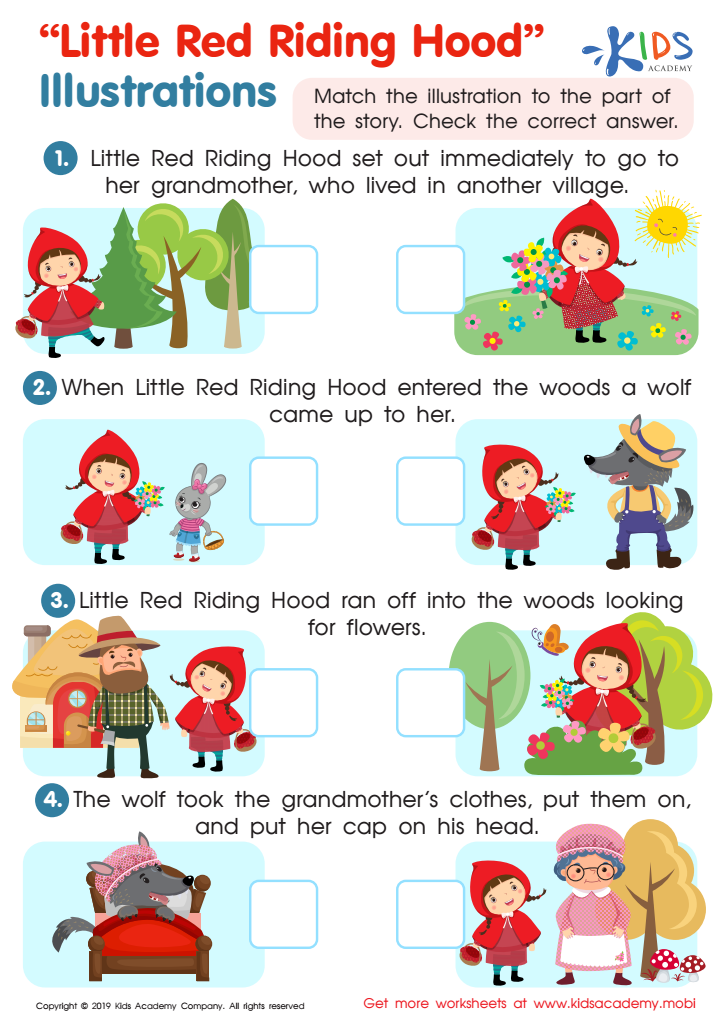

Little Red Riding Hood: Illustrations Worksheet
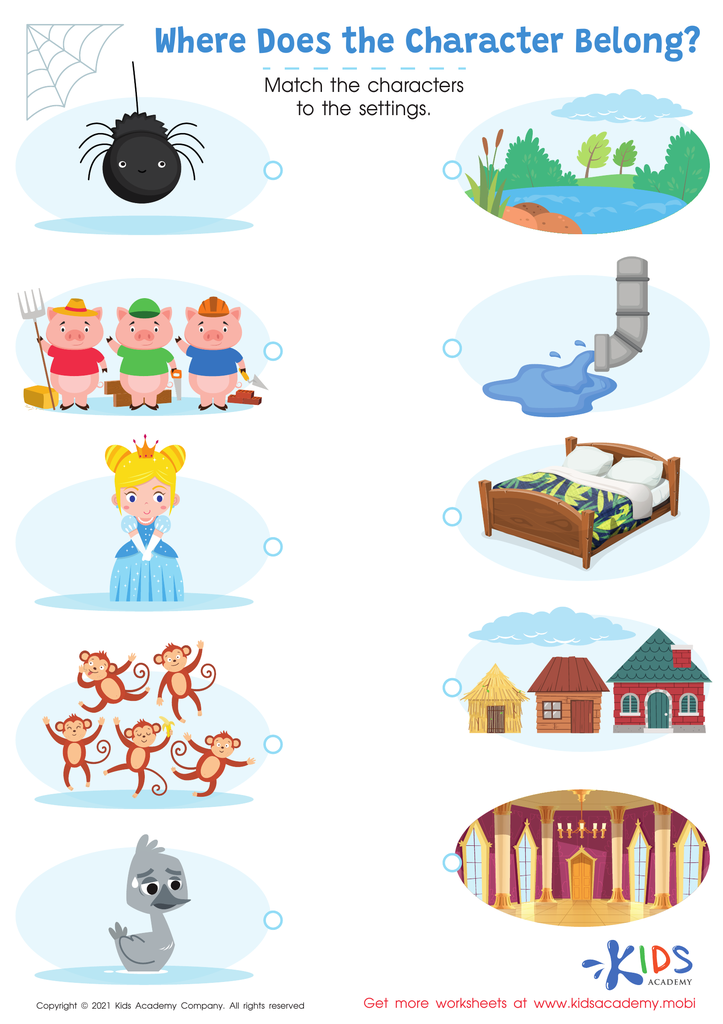

Where Does the Character Belong? Worksheet
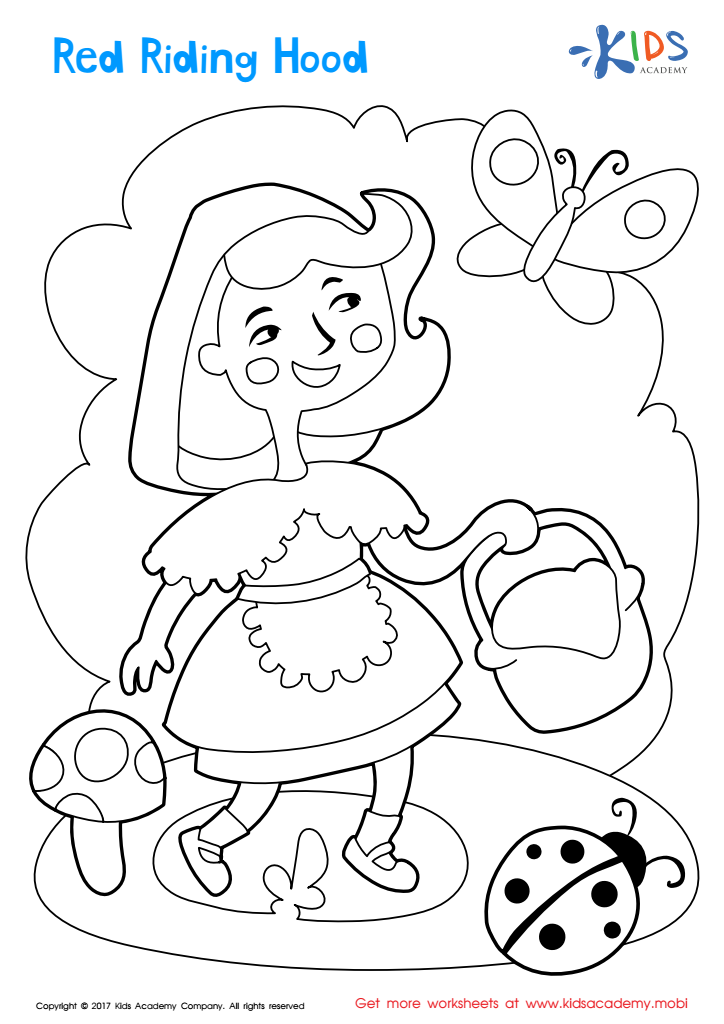

Red Riding Hood Coloring Page
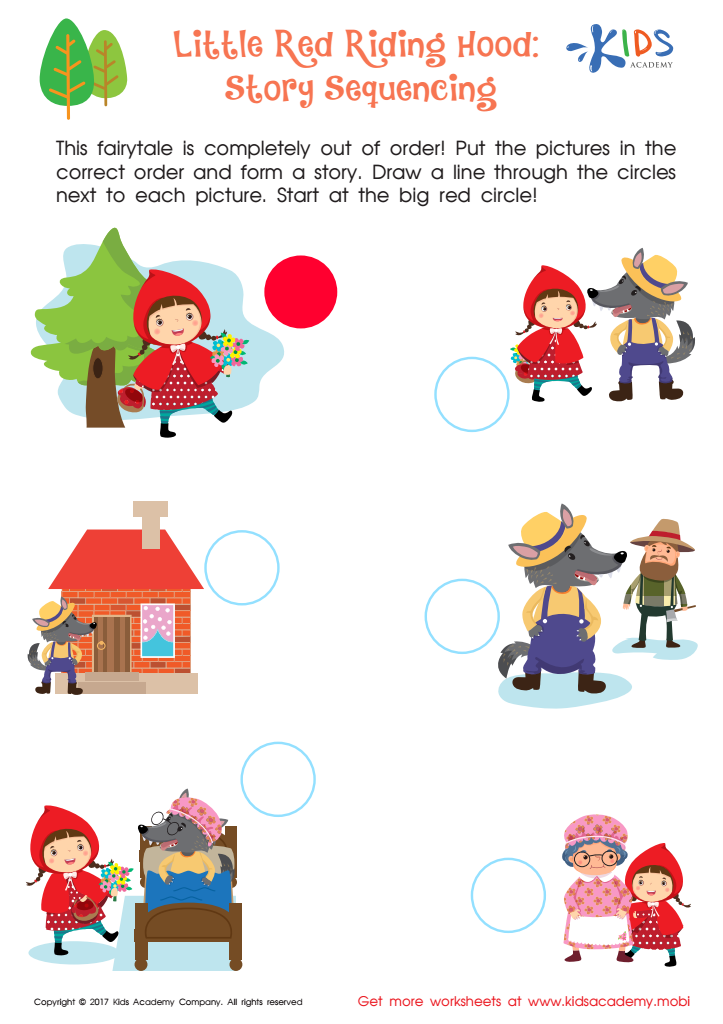

Story Sequencing Printable
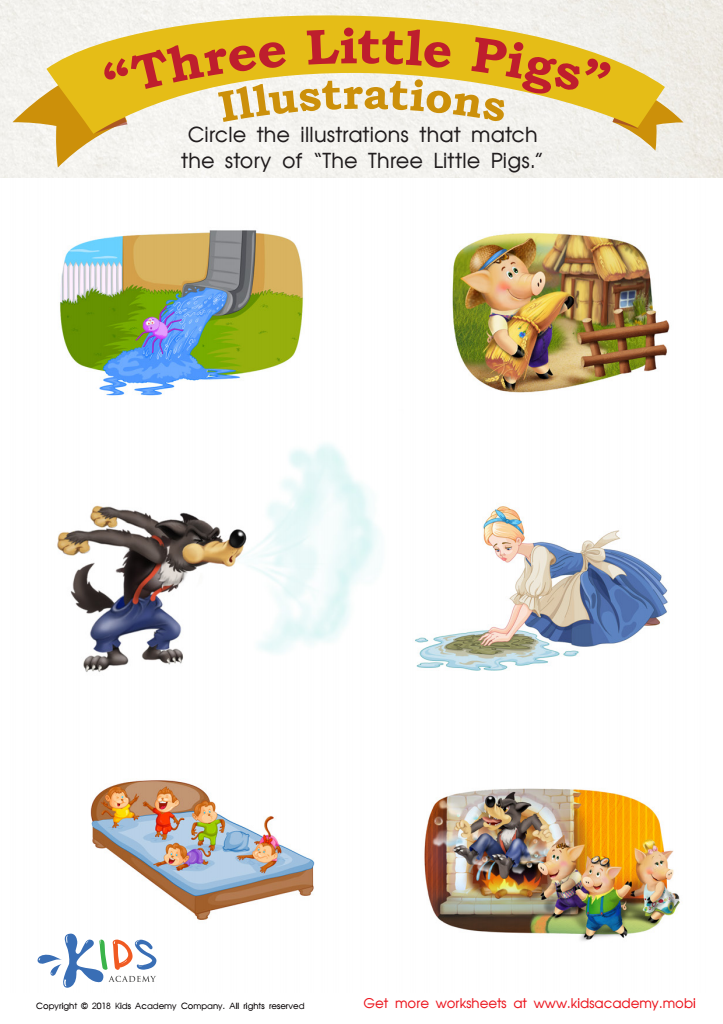

Three Little Pigs: Illustrations Worksheet
Story comprehension reading for ages 3-5 is critically important as it plays a foundational role in early childhood development. At this stage, children's brains are rapidly growing and are highly receptive to learning. Engaging young kids in story comprehension helps develop their language skills, vocabulary, and cognitive abilities. Through listening to stories, children learn new words and phrases, which enhances their communication skills. They also begin to understand syntax, grammar, and the nuances of language.
Moreover, story comprehension fosters imagination and creativity. As children follow a narrative, they visualize characters, settings, and events, which can enrich their imaginative play and problem-solving skills. Comprehension activities also cultivate critical thinking. By asking questions about the story, kids learn to analyze and predict outcomes, laying the groundwork for logical reasoning and analytical skills in the future.
Social and emotional growth is another significant benefit. Stories often incorporate themes of empathy, cooperation, and emotion management, helping children understand themselves and others better. For parents and teachers, dedicating time to story comprehension builds an intimate connection with the child, promoting a love for reading and lifelong learning. Investing in this early developmental stage not only enhances literacy but also nurtures well-rounded, emotionally intelligent individuals.

 Assign to My Students
Assign to My Students






















